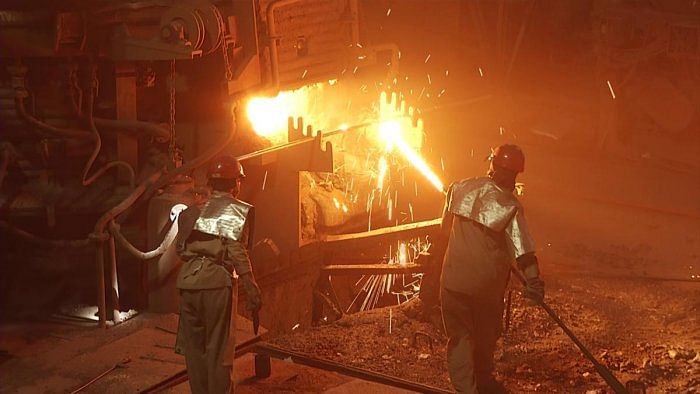
Officials at the Yelahanka Rail Wheel Factory (RWF) will replace its diesel guzzling furnace with a CNG-based unit expected to cut carbon emissions by over 80% and fuel cost by nearly 45%.
The wheel-making unit, which has been supplying railway wheelsets to zonal railways across the country since its inception in 1983, will be shut down for six months to enable the upgrade. The furnace will be shut by the end of January.
The move comes after the RWF won national recognition for its water conservation efforts. The factory swiftly followed that initiative by upgrading the Rotary Hearth Furnace into a compressed natural gas-based (CNG) furnace two years ago. But the real guzzler of conventional fuel, the normalising furnace, depended on high-speed
diesel.
Officials said the axle furnace consumed 240 kilograms of oil equivalent (kgoe) of HSD to heat a tonne of steel. The switch to CNG meant processing an average of 4,200 metric tonnes of steel every month and cut the HSD consumption by 10 lakh kgoe.
The wheel furnace consumes 50 litres of HSD for processing a metric tonne of the metal. The average monthly consumption stood at 6.3 lakh litres HSD, which will now be replaced with CNG.
RWF officials have worked hard to ensure no shortage of wheels to railways and private players. “We are switching to a clean fuel but that will not affect our supply chain. We have an inventory of more than 40,000 wheels that can well cater to the demand from the railways and private players,” Rajiv Kumar Vyas, general manager, RWF, told DH.
“Besides, the furnaces dedicated to axle manufacturing will continue to run,” Vyas said, adding that production has been ramped up in the last two months to increase the inventory.
The normalising furnace, originally built during the factory’s inception, has outlived the official’s expectations. They said while the lifespan of such machines is about 15 years, regular reconditioning and maintenance work has helped its longevity.
The cost of the new furnace is estimated to touch Rs 20 crore.
However, the RWF will save much more by relying on the CNG, which is cheaper than diesel.